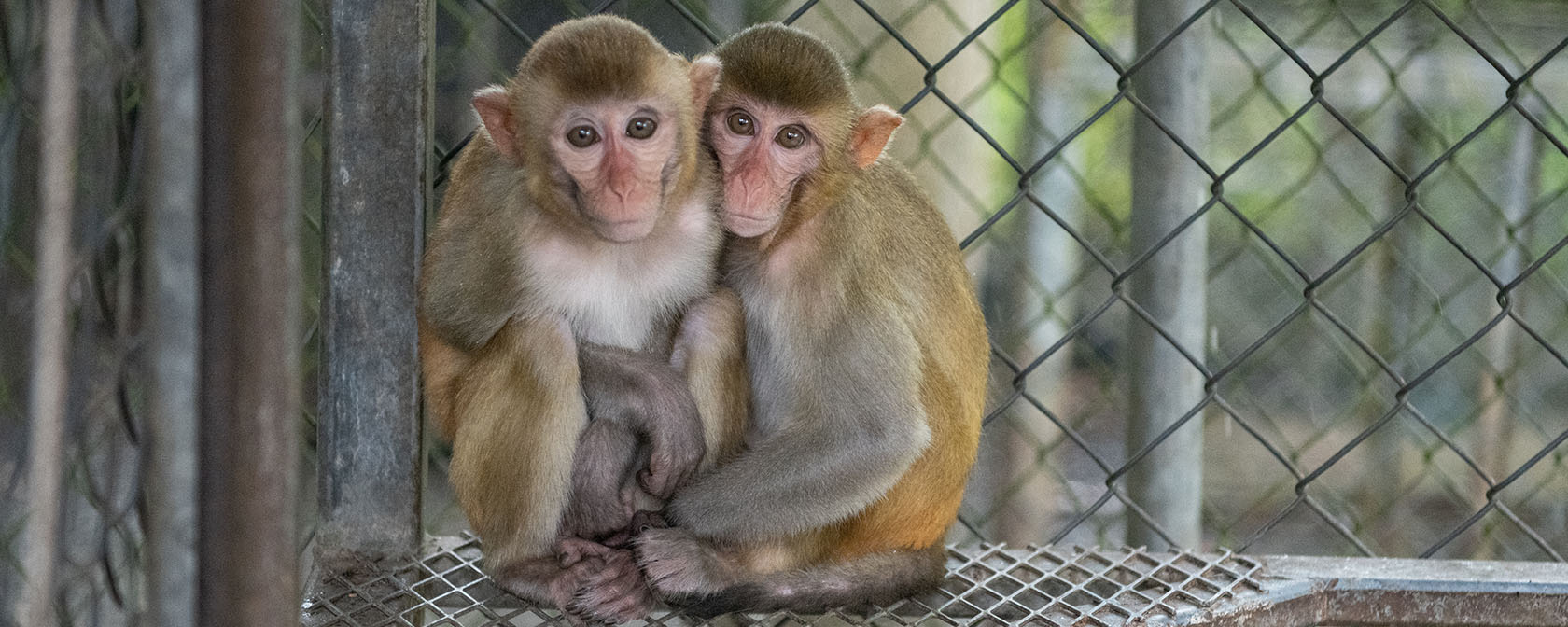By Sara Amundson and Kitty Block
We’re pushing back hard against plans to fund expanded reliance on monkeys in experiments in the U.S., plans that would see even more of these intelligent, curious animals used in outdated and unreliable tests, often at taxpayer expense.
Instead, we’ve advocated for broader investments in technologically-advanced methods that don’t use live animals and can tell us more about how the human body works—instead of attempting to translate the results of animal experiments to humans.
The drive to breed, procure and use more monkeys is one of the most alarming trends in contemporary biomedical research. It’s something our colleagues have investigated and it’s something we’re focused on in the public policy arena. In February, we told you about a proposed monkey breeding facility in the small town of Bainbridge, Georgia that, if built, would house up to 30,000 long-tailed macaques, most of whom would be shipped to laboratories to be used in experiments. Thankfully, that proposal is now on hold pending legal action. After we asked Georgia residents to join local citizens and animal advocates in speaking out against the facility, the Development Authority of Bainbridge and Decatur County voted to revoke its approval of a key step for the project and the Decatur County Commission disavowed its approval of terms of the deal, which included $300 million in revenue bonds.
In response, Safer Human Medicine, the company behind the proposed facility, has said it intends to move forward with the project and has filed a motion seeking a preliminary injunction in the matter. Some Bainbridge residents are suing city and county authorities regarding the process that led to the facility being approved. And for our part, we’re preparing to oppose this and any future such proposals.
This is a battle we’re also waging in the nation’s capital, and in good news, with the help of more than 60,000 supporters who contacted their legislators, we helped ensure that $30 million in taxpayer dollars specifically designated for expanding the use of monkeys in research and testing was not included in the final funding bill for fiscal year 2024, passed by Congress and signed into law by President Biden on March 23. Even better, the package included increased funding and directives designed to advance non-animal methods and reduce animal testing.
That said, our fight to move away from experiments on monkeys and other animals is far from over. Congress is considering a request from the National Institutes of Health to include $10 million in taxpayer dollars in the federal budget for fiscal year 2025 to increase breeding and experiments on monkeys above and beyond the millions of dollars already spent on these experiments each year. We need your help to keep the momentum going and stop this second funding request. And we need to do so right away.
Monkeys have historically been used in experiments with the hope of improving human health and safety. But animal testing not only causes immense suffering for animals in laboratories—it also hinders advances in human healthcare. Animal experiments will never be able to accurately tell us what we need to know about the human body, animals often do not have the same diseases as human beings and they do not respond to drugs the same way as we humans do. We’re confident that by continuing to push for replacing monkeys in experiments with sophisticated methods based on human biology, using human cells, tissues and data from humans, we’ll ultimately save not just animal lives, but human lives as well.
Kitty Block is CEO of the Humane Society of the United States.




